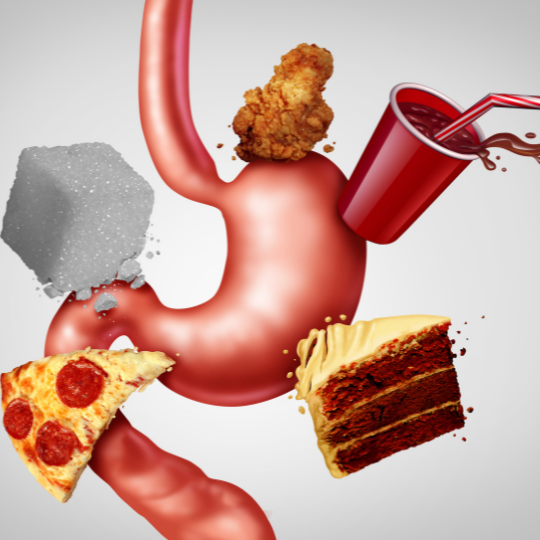Have you ever heard about Nutritional interventions? It is a broad term that encompasses the use of diet, fortified and functional foods, supplements, and medications to promote health and prevent or treat diseases. All of these approaches can be effective in certain situations, but they vary widely in terms of their appropriateness, benefits, and potential risk or adverse effects. Understanding the differences between these interventions can help individuals make informed decisions about their own health and wellness.
Level 1: Diet
Starting with the most basic form of nutritional intervention, diet is the cornerstone of good health. A healthy, balanced diet that is rich in fruits, vegetables, whole grains, and lean proteins is well known to provide nutrients that the body need to function properly and prevent the development of chronic conditions such as heart disease, diabetes, and cancer (Cena, H et al, 2020). While it is possible to get all of the nutrients that the body needs from whole foods alone, some people may not be able to consume a varied and balanced diet due to dietary restrictions or allergies. In these cases, fortified and functional foods can be used as a supplement to ensure that nutrient requirements are met.
Level 2: Fortified foods

Fortified foods are those that have additional nutrients added to them (NIH, nd). Some common examples are fortified milk with calcium and vitamin D, fortified bread with iron and group B vitamins. These products are designed to help people get nutrients they need when they are unable to consume them though diet alone. However, this is not a shortcut to level 1, which is always better to tackle first; It is just a second best.
Level 3: Functional foods
Functional foods are whole foods that have been shown to have a specific health benefit beyond their basic nutritional value (Temple NJ, 2022). Some examples are probiotic yogurt, which can help promote gut health, or blueberries which are high in antioxidants and have been shown to improve brain function.
Level 4: Supplements
Moving up the food-supplements-drug continuum, supplements are another form of nutritional intervention (EFSA, nd). Supplements are totally different to fortified or functional foods because they are not intended to be consumed as part of a normal diet. Supplements are usually taken in addition to a person’s regular diet to supplement it (meaning: a thing added to something else in order to complete or enhance it) with extra nutrients. They can be made from a variety of sources, including herbs, minerals, and other plant or animal-based substances. Some examples are multivitamin capsules or creatine.

While supplements can be an effective way to get nutrients that a person’s diet may be lacking, it is important to be cautious when using them. A lot of them are not regulated by the FDA, which means that their purity and potency may vary widely. Additionally, some supplements can interact with medications or have other unintended side effects, so it is always a good idea to consult a healthcare provider (you can contact us 😉) before starting any supplement regimen.
Level 5: Medications
Lastly, we’ll talk about medications. Medications are used to treat or prevent specific health conditions. They are highly regulated and are typically only used when other forms of intervention, such as diet and supplements, have been found to be insufficient for a particular patient (NIH, nd). While medications can be extremely effective at managing certain conditions, they can also have significant side effects and should be used with caution.

As you can see, the food-supplement-drug continuum is a way of representing the different approaches that can be taken to promote health and prevent or treat disease. At one end of the spectrum are simple dietary changes, which can be eating a healthier and balanced diet and getting regular exercise. At the other hand of the spectrum are medications, which are highly regulated and are used for specific conditions where other forms of intervention are insufficient. In between we have functional and fortified foods, which can add interesting nutrients to our everyday diet, and supplements, which are usually taken in addition to a person’s regular diet.
But why do we care about nutritional interventions?
One of the key benefits of focusing on prevention through diet and other forms of nutritional intervention is that it can help to reduce the risk of developing chronic health conditions in the first place. By getting the nutrients that the body needs through a healthy diet, people can reduce their risk of developing conditions such as heart disease, diabetes, and cancer. Additionally, nutritional intervention can often be more effective, and people have fewer side effects than by using medications, making it a preferable option for most people.
Early life nutrition is also an important factor in later life health. For example, sufficient calcium consumption in female youth can help to reduce the risk of osteoporosis in older age. Ensuring that children and adolescents consume a varied and balanced diet can help to set the stage for a lifetime of good health.

Which one to choose?
One key factor to consider is the stage of the health condition in question. For example, when it comes to prevention, dietary and lifestyle changes may be the most appropriate approach. This includes diet, exercise and managing stress. On the other hand, when the person is already experiencing symptoms or has been diagnosed with a specific condition, more targeted interventions may be necessary. This can include fortified and functional foods, supplements or medication.
To wrap up, it is important to educate people about the importance of nutrition and the role that food can play in promoting health and preventing or treating disease. Nutritional intervention is a broad term, but simple dietary changes can help you enhance your overall health, and knowing the alternatives we have when we have certain nutrients deficiencies or health issues can be useful. Remember to always make informed dietary and lifestyle changes and consult a healthcare provider ideally to ensure you are getting the most benefits for your particular situation.











